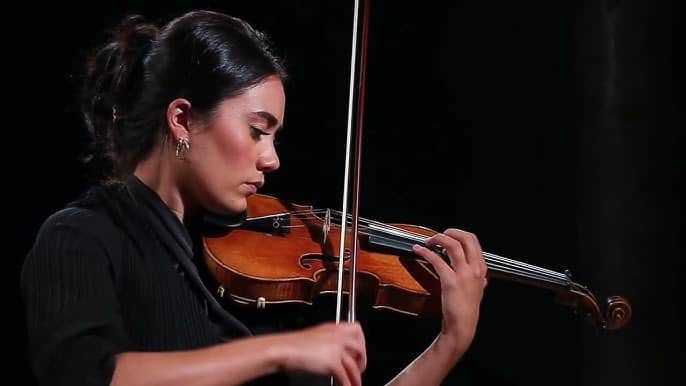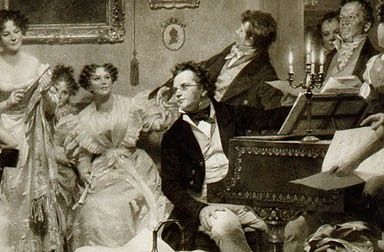Philadelphia strikes pay deal
NewsAfter months of public posturing and fairly polite negotiations, musicians of the Philadelphia Orchestra reached a fairly impressive three-year pay deal last night.
It raises their wage by 6% in Year 1, 4.5% in Year 2 and 4.5% in Year 3. Overall, that’s a 15.8% pay hike.
From now on, substitutes will receive the same pro rata fee as permenent players and the management has agreed to start a hiring round to bring the orchestra to its full complement of 105 players.
Double-bass David Fay, chair of the players’ committee, said: ‘We are an ensemble, and we stuck together and refused to accept substandard deal after substandard deal. This contract is a victory for the present and future for the Philadelphia Orchestra and its world-class musicians. It includes the largest base salary increase that we have seen in recent memory, necessary improvements to work rules, and pay parity for the substitute and extra musicians that work tirelessly to preserve the sound of our ensemble. We appreciate the leadership of our musical director Yannick Nézet-Séguin whose deep respect for us as musicians was evident in his support for a fair contract. This has been a tou’h process, but one that I know has made the musicians of the Philadelphia Orchestra incredibly proud.’






And the slagging of their music director, that has nothing to do with the story, will start in 3.. 2… 1…
After reading your comment, I wondered how long it would take for “someone” to bring Muti in. As it turns out, it did not take long. The very first comment right after yours…
After Cleveland, Philadelphia also outclasses Chicago 6.5% to 3%. But to the surprise of no one.
Would you rather pay to listen to a glimmering, brilliant Beethoven? https://www.youtube.com/watch?v=nLXn3Et1dnc
Or a dull, pedestrian, joyless one? https://www.youtube.com/watch?v=1ZWvG_OJ6pI
Audiences have already answered.
Wow. The second one sounds like a conservatory orchestra. And that trumpet punched me right in the face, I almost spilled by wine. Definitely not a good marketing clip.
Thank you for sharing, there is indeed a stark contrast.
Oh yes, yes!
But it’s no Muti’s fault! His energy here must have literally been, uh, suctioned, may we say, in JA-sponsored pre-concert strains :-))
The differences between those two performances are not nearly so great as to justify calling one “glimmering and brilliant” and the other “dull, pedestrian, and joyless”.
Really.
Muti on speed (!)
Congrats to Philly. That is my favorite orchestra and they have never sounded better.
Brad G “Never sounded better” – really? Ever heard of Ormandy?…
Curtis Institute also gave the Dover Quartet a pay raise when the new violist joined this year from the Boston Symphony. Too bad they had a few concerts cancelled during the pandemic due to the first violinist refusing to get vaccinated. Hopefully, the pay raise will help cover the cost. I heard the first violinist is now facing legal troubles with the previous violist! Hopefully pay raise for all the women!!
Anonymous, irrelevant, malicious gossip (partly repeated from another thread under a different name). Why? What’s your motive?
Hi Joel! Everyone deserves the truth!
Oh yeah, I heard this as well when I was at an outing with some MET musicians. Didn’t the first violinist also try to turn all the students against the former violist too? Or is that not true. I am surprised they went with the current violist because I heard the first violinist specifically said no female colleague this time and preferred a male colleague. That is just wrong.
I don’t know this situation but isn’t Joel a very talented violinist but just out for himself? Isn’t that the most case anyways? Pretends to be nice but then at the end of the day, just out for himself? I think it is a valid point, although I did hear that he has a history of excluding other quartet members for stuff to only build relations with people for himself only. sounds like typical social competition for me.
Now that extra musicians get equal pay, however that is calculated, the next step is to give them job security. To maintain your level of playing and instrument just to be available for the Orchestra to use you whenever, is too big of a burden. One has to wonder if they keep a regular rotation going to ensure that.
Some people prefer the freedom of the freelance life, with its “no mutuality of obligation”. For instance, I know an orchestral musician who moved to London and became freelance after resigning from a permanent position as a principal player in a distinguished orchestra elsewhere in the UK, whose motivation for such a move was to a large extent a desire not to be stuck working under the same principal conductor all the time. Moreover, it has to be questioned what the terms of engagement for an extra with “job security” would involve: for instance, would the extra be contractually required to be “on call” for substantial periods of time (with a certain level of guaranteed pay, probably lower than that applicable if actually performing, but no guarantee of actually appearing on stage and getting credited in the programme) and prohibited from accepting other engagements on the off-chance that the orchestra requires him/her at a moment’s notice? Such an arrangement would be potentially invidious, since it would impede the extra from gaining experience and exposure elsewhere without any guarantee of obtaining the same through the orchestra (whereas a permanent member of the orchestra would at least be guaranteed plenty of stage time in consideration of his/her agreeing to treat the orchestra’s dates as paramount).
Having extolled the virtues of the freelance life, it should nevertheless be remarked that those engaging freelancers should expect to pay a premium for the flexibility of getting the professional only when they need him/her and not having to pay him/her at other times. That the Philadelphia orchestra is giving *only* equal pay suggests that they do not regard the extras as being of equal value/capability… and, to be honest, that evaluation is probably (notwithstanding my previous paragraph) correct in most cases.